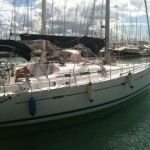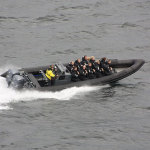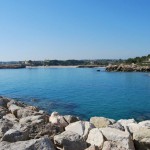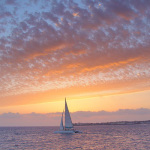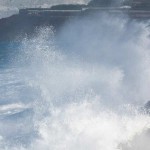Este post esta disponible también en: Русский (Russian)
What you need to know before sailing and how the insurance compensation works
You are ready to set sail: the weather forecast is checked and so is the route, a copy of which you have left on land; you´ve got enough fuel and drinking water; you have verified the communication equipment (in case of danger it is important to be able to ask for help, and a mobile phone may not have coverage); you have verified ship’s watertightness, life vests on board, personal and fire safety equipment, as well as emergency alert equipment.
Among the documents on your boat there is an insurance contract and a document confirming the payment of the insurance premium. When concluding an insurance contract, even if it is the most basic contract of mandatory civil liability, we recommend to include a guarantee of assistance at sea.
You have all the necessary telephone numbers within easy reach, including the Maritime Rescue Service; and, of course, whatever happens, you will stay calm!
Here we offer the information on how assistance at sea works and how compensation is paid under the insurance contract.
First, some facts about the Maritime rescue service in Spain (Salvamento Marítimo, http://www.salvamentomaritimo.es/): it is a public commercial entity under the Ministry of Development, whose main task is to guarantee security at sea in Spain. Among the main functions of the service are: organization of search and rescue operations, control of sea pollution and control of maritime traffic. In addition, in order to achieve these objectives effectively, the Rescue service organizes cooperation with other institutions, including the Red Cross, the maritime police, the national police. The Service has marine and aerial vehicles at their disposal.
How to proceed in case of an accident:
If there is a threat to life, immediately call the Maritime Rescue Service, also notify by radio any vessel that can help you as soon as possible.
If there is no danger to life, call the nearest port by telephone or radio so that they send a boat that would tow yours.
If there is a private boat nearby, this is usually the fastest and the most effective way to get you out of a tight spot.
If there are no boats nearby and the port cannot send anyone, you can call the Maritime Rescue Service. The logic of such order of action is that the means of the Maritime rescue service should be available in case of a possible emergency that requires to save lives at sea. Therefore, if the weather conditions are favorable, and you are close to the coast, it is very likely that you will be recommended to find alternative ways out, especially if the service boat is at a considerable distance.
In most cases, the towing service works on a reimbursement basis: you will be charged for assistance, and then the insurance company will pay you back the amount on the invoice. The insurance contract generally covers the reasonable towing costs to the nearest port (or in accordance with the official rates published by the Maritime Rescue Service).
If you inform the Rescue service about the insurance contract, you can be given out a worksheet that you send directly to your insurance company, and do not have to pay for towing yourself.
Attention! If the vessel providing assistance was in the process of professional activity, you should indicate that you are requesting the tow, not the rescue (otherwise, they might request a large sum). You would be billed for the time spent in tow, in addition to the loss of benefits during this time. Your insurance company would try to reach an agreement on a reasonable amount of compensation.
Here you will find recommendations of the Maritime Rescue Service in case of an accident at sea (in Spanish):
http://www.salvamentomaritimo.es/seguridadnautica/emergencias/otros-casos/
And finally, here you can find our budget insurance offers for your boat and conclude a contract without leaving home:
http://www.nautia.net/order/step1
We hope that this information was useful.
Fair winds and following seas!

